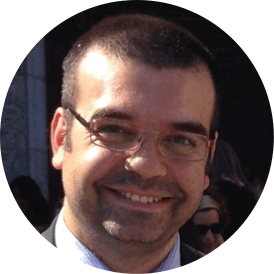Is our mission saving the planet? I don't think so.
- Michael Panao
- 10 de ago. de 2016
- 3 min de leitura
Recently I read the following sentence.
On Earth nature is beautiful, in heaven it is human beings who are more beautiful.
In a provocative way, if this is true, we're not fulfilling our mission.
Ok. What is that mission? Let's look at our history.
In the earlier days of Humanity, we had a collaborative relation with nature. Even if we changed it, nature was not compromised. But everything changed with the industrial revolution. Through technology, a product of human intelligence, we could go farther than any species on Earth. That produced severe environmental consequences.

We are part of nature, not apart from it, but the ability to dominate (so we think) the forces of nature fed out dreams of grandeur and we lived under the illusion of mastering nature.
We'll never master nature because contingency is not to be mastered but embraced. Bad things can (and will) happen due to contingent events. However, because of them there's novelty in nature, including our coming into being. The challenge is learning to accept that. And that is difficult.
All this defines our mission. The concept of being administrators, stewards, is mostly due to the Bible's interpretation, namely the Genesis Book, and was an important one to overcome our usurping spirit. But is this our mission? Be stewards of creation?
Many see creation as a gift for us. However, stewardship of creation is still a limited way of interpreting our mission.
- "Really?"
- "Yep."
- "But isn't stewardship the best way to develop an ethics that protects nature?"
- "Yes. But is protecting nature our mission?"
Some think this way, and this is good thinking.
But I believe we can go further.
If we became suddenly extinct in a post-apocalyptic scenario, what would happen to the rest of the natural world? Yep. You're probably thinking the same as I... it would go on. So... what does "protect" means if not to protect nature from ourselves? That is still living as being apart from nature and not fully recognizing that we are nature's self-conscious part. We need to move forward and evolve the concept of stewardship to something bigger, more profound, closer to reality.
As humans, we went beyond what we were.
We couldn't fly, thus invented the airplane.
Couldn't dive as deep as a whale, thus invented submarines.
Couldn't run as fast as a cheetah, thus invented cars and run faster.
The technology that destroyed the planet can also make it a better and beautiful place where the natural harmoniously flourishes with the cultural.
But is our mission fixing things, doing things, an operative mission?
I don't think so.
If we are distinct from nature, it is because we have a creativity like no other species. We are capable of the best and the worst. That is related with what we are, more than what we do. Related with Being, not so much with Making.
If we can "be" more, can the rest of the natural world "be" more as well?
What can we do to make nature move toward Ultimate Being. Isn't that our ultimate goal? Move toward Ultimate Being?

But, what does it mean to be "the Ultimate Being"?
I can only think of one answer.
God
It doesn't matter if you're a believer or a non-believer. God is the Ultimate Being and moving nature toward Ultimate Being means toward God (who-ever, how-ever, what-ever He might be).
If this is our calling, our mission, it is not being a steward, a manager, administrator.
Our mission is being a priest.
A priesthood based on service, elevating nature toward God. This is a proposal I found in the writings of John Zizioulas which are clear and ecologically inspiring.

Coming back to the initial sentence, on Earth nature is beautiful, but we're also beautiful because we are nature. And in Heaven, if we fulfill our mission, we won't be the most beautiful, because nature is there (somehow), but nature is also not the most beautiful.
The most beautiful is being with God.
Just that.
That is Heaven.
The most profound, eternal encounter and indwelling in God.
- "Ok. So. What does being Priests of Creation mean, in practice?"
- "Takes time to find out."
- "Meanwhile, how can we exercise this priesthood of creation?"
- "Be attentive. Be intelligent. Be critical. And only after decide how."
- "I'm sorry. What do you mean by that?"
- "Think."







Comentários